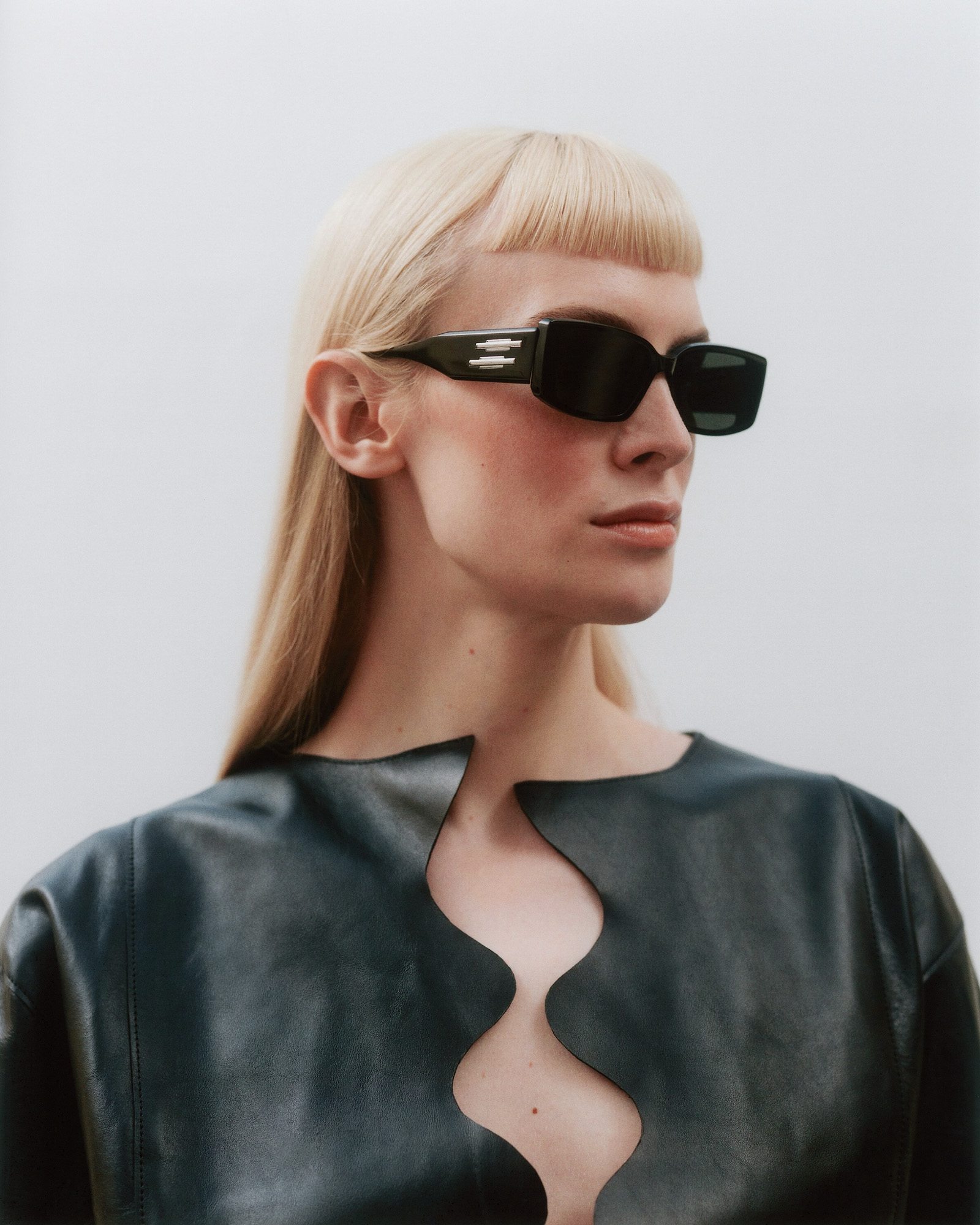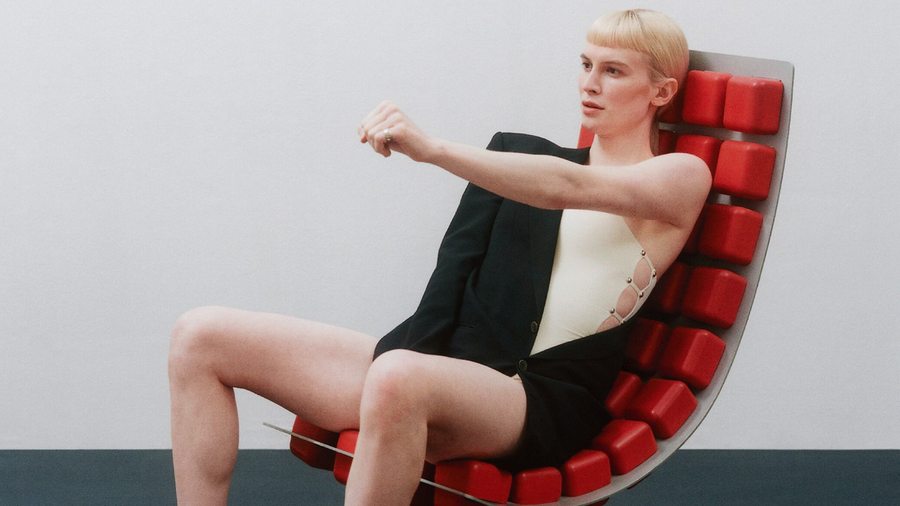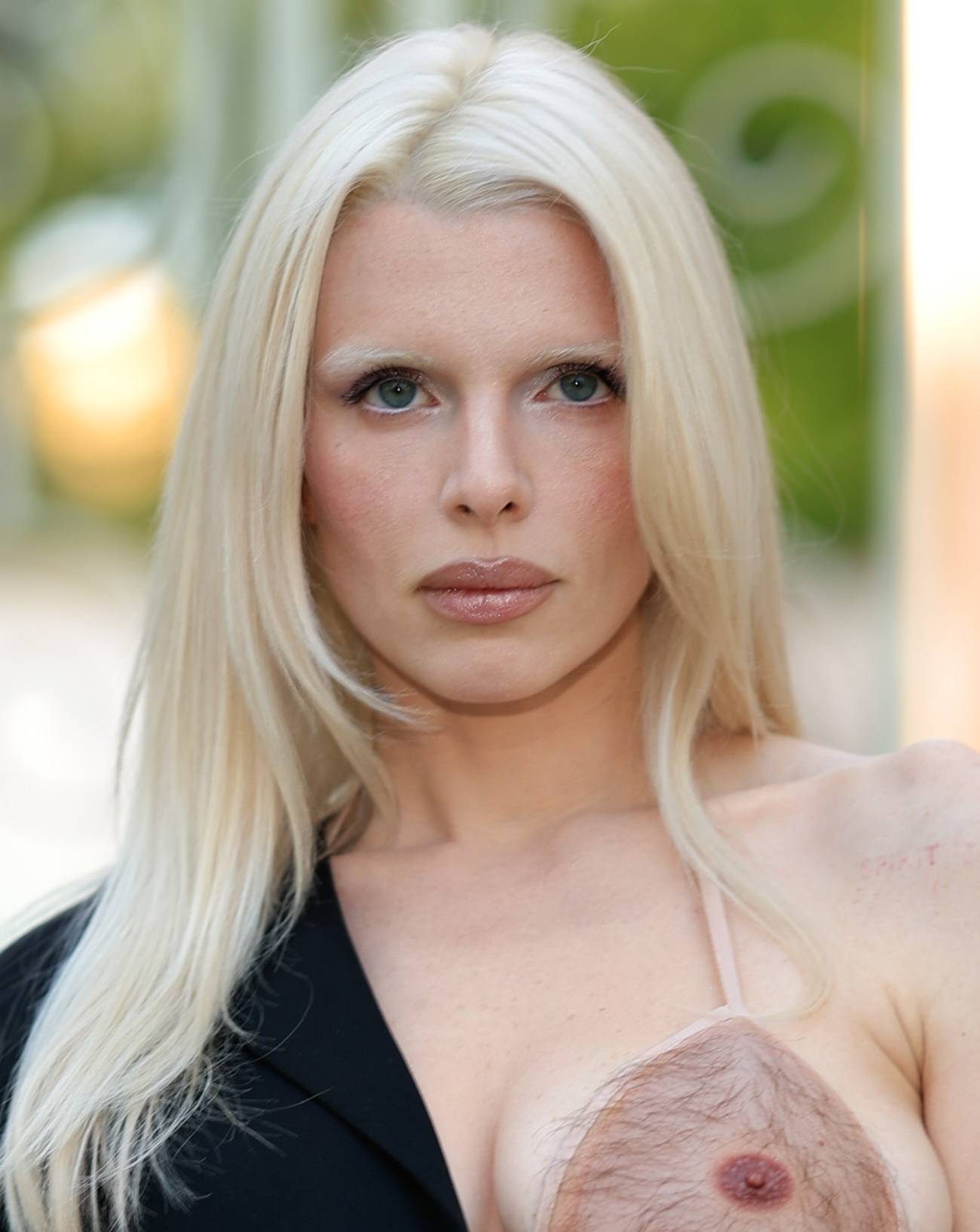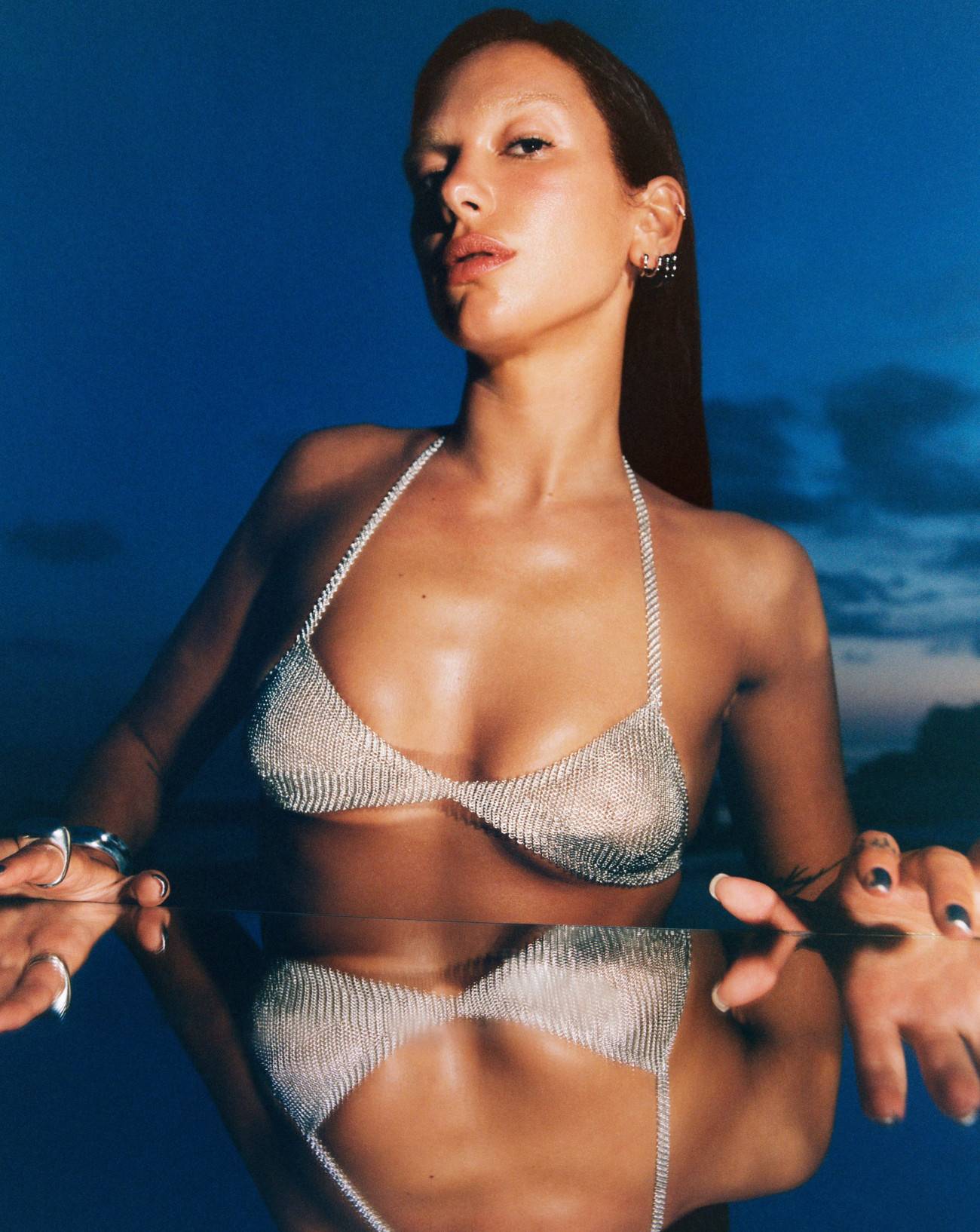

It’s 9.30 pm at Paris’s Gaîté Lyrique. It’s late November, and the fabled auditorium has been trans- formed into a sanctuary. As the lights go down, a slender silhouette with long blonde hair advances alone onto the stage. Behind her laptop and console, Lyra Pramuk makes myriad voices rise up to the gods, slowly clashing with and embracing each other in a bewitching polyphony. As the light show changes colour with each track, the new figure of experimental electro-pop performs the enchanting melodies of her first album, whose effect increases tenfold in space: cavernous or ethereal, the voice emanating from her microphone and machines becomes a thread to which the listener clings, from its first breath to its final exhalation, at times stretched in duration to become a bass line that gives the music its colour, at others syncopated to form the beat and the percussion.
Mixing Gregorian chant, gospel, a cappella folk, minimalism and electro, Pramuk’s sonic world hypnotizes and immerses the listener in its contemplative meanders. At the Gaîté Lyrique, the audience seemed to levitate, as if carried by these phonic layers and the clouds of smoke that swelled in the light of the projectors as Pramuk leapt, danced and prostrated herself to the grandiose and solemn sound of a show that was generated from one single source: her own vocal cords.
“Liquid,” “granular,” “sliding” or “cloudlike”... Pramuk describes her music as a tangible substance whose texture and density we can feel with our hands. Where her pieces forsake lyrics in favour of diffuse onomatopoeia, her analysis of them uses a very rich vocabulary, through which the rhythms become columns and monoliths, or the flutes and strings cascades of churning water. We see it again in the title of her first album, Fountain, released in 2020, which she describes as a “fountain of sounds that splash onto everything around them.” Over the course of its seven tracks, intended as an infinite loop, Fountain celebrates water in all its states.
In the soaring Witness, you feel as though you’re floating on a vast calm expanse, while in Mirror you’re tickled by a shower of acute vocals, after which Cradle’s bass voices pitch you into the depths. Behind the voluntarily dissonant vocal harmonies and the unusual structures of these tracks, the shadows of Steve Reich, Meredith Monk and Björk can be perceived, three contemporary geniuses known for having made the voice a malleable instrument.




It is immediately clear, the very first time you hear the album, that Pramuk’s music comes from another world. Its origins can be traced back to her childhood, when she began to explore her relationship to spirituality. Born in Pennsylvania to a Presbyterian mother and a Catholic father, her home life was marked by religion, her Sundays spent between the two churches her parents at- tended as well as in Bible-study classes. While Protestantism appealed to her for its sense of community, Catholicism attracted her more for the theatrical aspect of its rituals and ceremonies, which prompted her to join the church choir. As a teenager, Pramuk began to take a critical stance toward monotheistic religions, becoming fascinated by the hard sciences, atheism and paganism – a rejection of the doctrines of her childhood in favour of new forms of spirituality.
Her attraction to the unknown and the inexplicable, to mysticism and faith, are at the root of her insatiable curiosity and creative drive. The child who already felt different overlooked no type of creative expression: she drew, wrote, made sculpture, played the piano and the cello in an orchestra, did theatre and sports... “I was a very clear-sighted and confident child, extremely queer in a way,” she recalls. “I was acutely aware of the games I had to constantly play socially in a small town like mine, and theatre allowed me to turn that extreme alertness into performance.”
On stage every year from the ages of six to 23, Pramuk developed an intimate and powerful approach to performance, which was complemented, in the privacy of her bedroom, by musical composition. As a teenager, with her twin brother, she experimented with loop station, moving onto more serious instrumental compositions during her mu- sic classes at the conservatory and at university, where she was as much influenced by the classical greats, like Bartók or Prokofiev, as by contemporary icons of pop and hip-hop, like Missy Elliott and M. I.A. In her early 20s, she decided to dedicate herself exclusively to her voice, which she worked hard on so as to expand its range and develop new sounds. But she was shy about sharing her first demos, made after she graduated, associated as they were with the period of doubt and suffering in which she became aware of her trans identity.




It wasn’t until she moved to Berlin that Pramuk made a name for herself as a solo artist, performing at small festivals or accompanying her friends on stage. “At the time, writing songs wasn’t a way to become famous or make money, I just wanted to make music for myself,” she says. “Music that would help me to feel good, and strong.” The exhilaration of Berlin’s queer nights gave her the confidence to be herself in an electro scene that is still very masculine, where finding her place as a transgender musician and producer has not always been easy.
Today, Pramuk continues to explore the infinite potential of her music, inviting artists to rework the tracks on her album in order to offer a completely new interpretation of them. Released on a separate album titled Delta, these 14 previously unheard collaborations feature talented musicians and producers such as Tygapaw, Ben Frost and Colin Self. Moved by their involvement and creativity, Pramuk doesn’t hesitate to perform their songs on stage, closing her concert at the Gaîté Lyrique with a lively remix by Hudson Mohawke. “If you have to remember anything from this moment, it is the transcendent beauty of music,” she laughs during the encore. You certainly can’t argue with her.
Lyra Pramuk, Fountain and Delta (Bedroom Community), out now.










